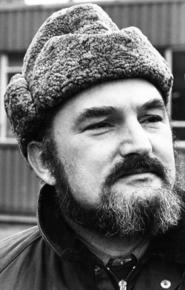Alan Brien died last Friday. He was the first, and best ever, theatre critic on the Sunday Telegraph; indeed he was the first appointment to that newspaper when it was launched in the early 1960s.
That was the measure of Alan’s distinction. The Sunderland son of an electrical engineer on the town’s trams, he went to Bede Grammar School and Oxford via a stretch in the RAF at the end of the war including a raid on Hitler’s mountain retreat of Berchtesgarden.
He was both earthy and urbane, worldly and thoroughly radical, a brilliant talker and writer on many subjects and a great rival, as well as friend, of Kenneth Tynan. They don’t make critics like him any more, certainly not on the Sunday Telegraph, anyway.
He was a regular star contributor to Plays and Players when I edited the magazine in the mid 1970s. He was always late with his copy, to the extent that I used to have to go round to his Paddington apartment and wrench it physically from his own hands.
I’d stand in the hallway while he finished it off at the typewriter and wait for him to emerge, tousled and invariably hung over, in his dressing gown. He was married four times, had five children and wrote just one book, a long simmering faction called Lenin: The Novel; tragically, I don’t know anyone who’s ever read it.
Once, he appeared in our Victoria Street offices after an exceedingly good liquid lunch in El Vino’s, where he formed a remarkable double-act with another great critic, Philip Hope-Wallace. He was at least two days late with the copy. “What am I writing about this month?” he asked. “Trevor Nunn’s sequence of four Roman plays at the Aldwych,” we replied.”How many words?” “Fifteen hundred.”
He sat in a corner, fumbling with a handful of cuttings which turned out to be a few newspaper reviews of the same production to jog his memory and feed his argument. He reeked of lunch and could hardly sit straight in his chair.
One hour later he handed over fifteen hundred words of the highest standard, witty, descriptive and appreciative, incorporating a dispute he once had with Lindsay Anderson over whether or not Shakespeare ever wrote a right-wing play (Brien grudgingly agreed with Anderson that Coriolanus fitted that bill).
Turning over these memories — “the last literary-journalistic giant in the tradition of G K Chesterton, Hilaire Belloc and James Agate,” said Philip Purser in his Guardian obit, not unjustly — I set off in the howling wind and rain of another typical Bank Holiday Monday for a tramp on Hampstead Heath.
We’d hardly gone fifty yards when I saw a curious fellow in a pork pie hat barking instructions, and throwing balls, at a trio of deep black mongrel dogs while an attractive blonde lady kept guard over a zipped up baby.
The picture came into focus. The man was Ken Campbell, the dogs were his dogs, the lady was Prunella Gee, the actress and mother of his daughter Daisy, whose baby was in the push chair.
“Right, as it’s you,” rasped the reckless genius of Epping Forest, “we’ll ‘ave an impromptu dog show!” And he turned our little patch of sodden greensward into a mini circus ring of leaping canines, pouncing and prancing, racing and fetching.
Within minutes, several other dogs had joined in and a small appreciative audience stood by with silly grins on their faces.
Ken was sorry to hear about Alan Brien, though he hardly knew him. “The thing is,” he said,”he gave the appearance of knowing what he talked about, even if he didn’t, and he had a wild, hedonistic streak about him which is good news, eh?”
We parted company and tramped on towards Kenwood to complete our Bank Holiday soaking and enjoy an excellent pint of beer in the Spaniard’s Inn. A good day was completed by catching up with the Martin McDonagh film, In Bruges.
In Bruges is a real gem, and an astonishing first movie by the author of The Pillowman and The Beauty Queen of Leenane. It has all McDonagh’s qualities as a playwright — great dialogue, terrific plot twists, sardonic humour, hilarious violence — as well as a naturally instinctive cinematic nous.
The story of the two sad hitmen stranded in Bruges while awaiting instructions is beautifully shot (as indeed are most of the characters by the end) and edited and also, ironically, serves as a great tourist brochure for Bruges.
In some ways the film is an hommage to Nicholas Roeg’s Don’t Look Now, the canals of Bruges substituting for those of Venice, but the tone is finally all of its own, and the performances of Brendan Gleeson and Colin Farrell as the hitmen and Ralph Fiennes as their shadowy boss are absolutely cracking.
Michael Coveney - Tuesday, May 27th, 2008 - What's on Stage
Monday, 9 June 2008
Subscribe to:
Post Comments (Atom)

No comments:
Post a Comment